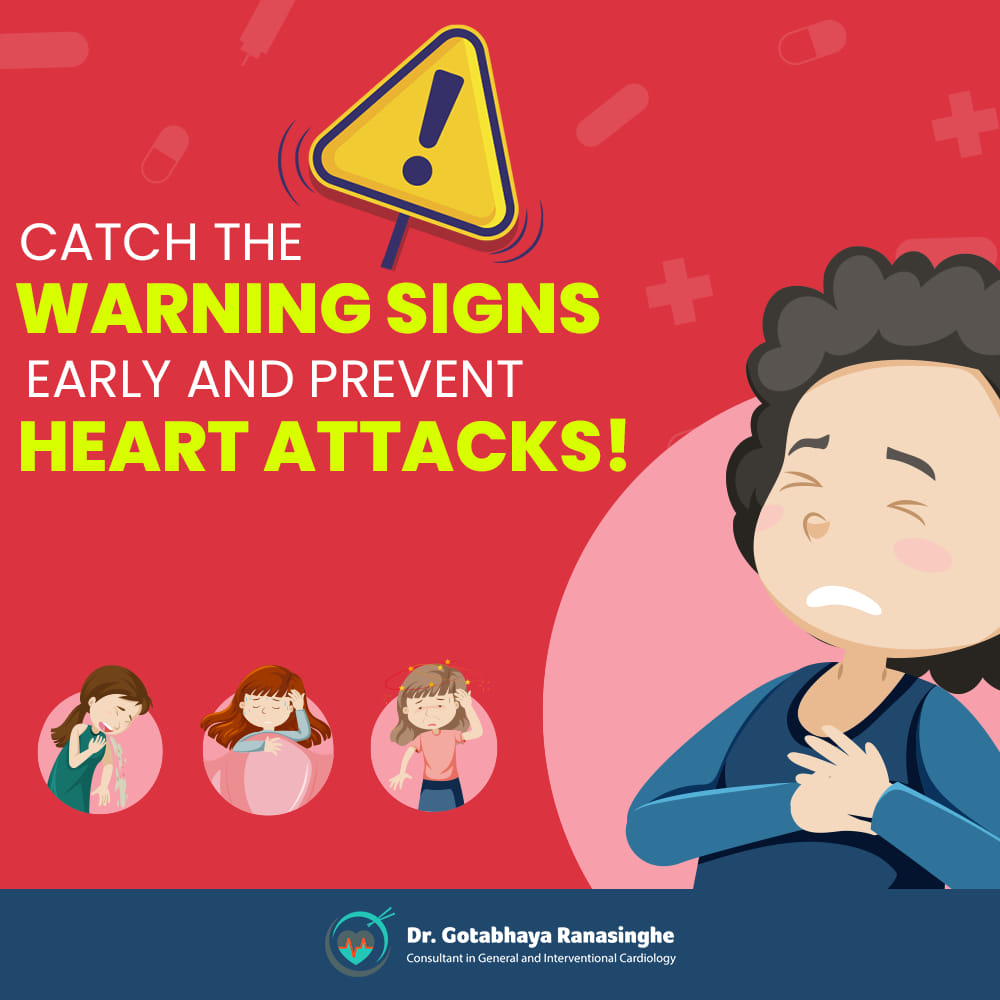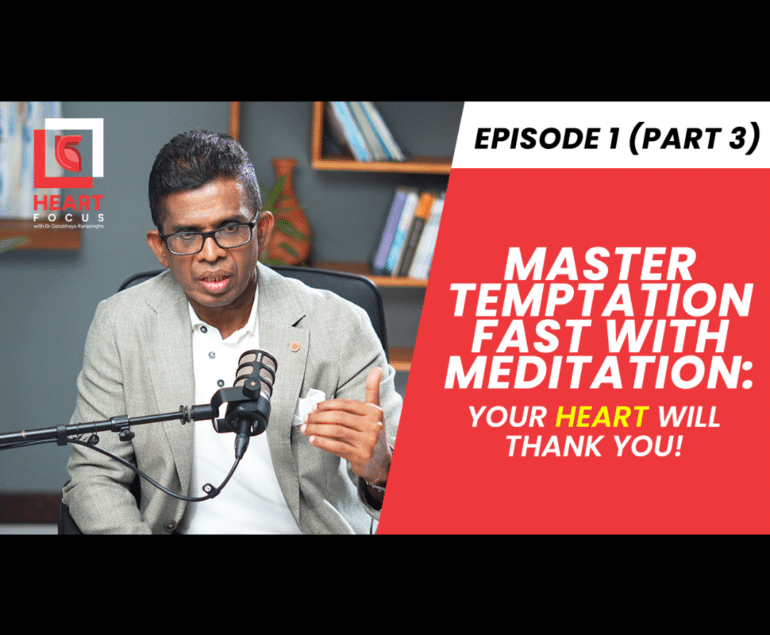Catch the warning signs early and prevent heart attacks!
Even though people are aware of signs of heart attacks, we’re often misdiagnosed or ignored. Many of my patients ask me if they can recognize the warning signs of a heart attack at the early stages. So I thought I’d share my thoughts offering you all answers to the big “HOW”.
A heart attack, or what I reluctantly refer to as “Widow Maker’, is a medical emergency, and it’s always good to understand the warning signs at an earlier stage and listen to what your body is trying to tell you.
While sometimes the signs of a heart attack can be quite obvious, sometimes they aren’t. However, there are a few classic signs you might notice that will help you take quick action to prevent a heart attack or save someone who is having a heart attack.
One should also be aware that “warning signs” are the “red lights” that sound the alarm indicating a heart attack that may occur within minutes, hours, or days. The “warning signs” should not be mistaken and considered to be symptoms.
Did you know that all heart attacks are not alike? Some may experience a heart attack without feeling any chest pain which means the same signs are not experienced by everyone, especially women.
What are the warning signs of a heart attack?
I have listed a few signs that most patients experience before having a heart attack. If you notice any of these signs yourself or in someone else, I advise you to seek early medical attention.
- Chest Pain – Pain, a burning sensation, sudden tightness, squeezing, or uncomfortable pressure in the centre of your chest. Sometimes this discomfort may last for only a few minutes and return a few hours or a day later. This is a clear sign that your heart muscle isn’t getting the required amount of blood. In this instance, it’s advisable to seek professional medical assistance.
- Pain radiating through other parts of your body – Pain, prickling, pinching sensations, or numbness in one or both of your arms, back, shoulder, neck, throat, stomach, teeth, or jaw.
- Unusual sweating, sudden heat & flushing – If your blood vessels are blocked, the effort of carrying blood is much more, and therefore your body starts to sweat more as it tries to keep the body temperature down during the additional exertion.
- Unusual fatigue – Getting tired easily doing the simplest day-to-day activities like walking etc. The additional stress on your heart when it tries to pump blood when the blood flow is blocked can cause fatigue.
- Shortness of breath – Your heart muscle pumps and circulates blood to the tissues, and other muscles. If the heart muscle gets weak, the supply of oxygen to the lungs will lessen and may cause shortness of breath.
- Lightheadedness or dizziness – This May occur during or preceding a heart attack. If you feel lightheaded or dizzy, you should seek medical attention.
- Sudden nausea, vomiting, or indigestion – Some patients experience indigestion problems before a heart attack. If such unexplained issues occur, do not dismiss them as heartburn/ gastritis/food poisoning.
- Unusual heartbeat/ palpitations – Your heart has a consistent rhythm and a steady beat. However, if you feel a skipping or pounding sensation in your heart, consult a doctor.
Do not wait. Some tend to mistake the signs as “just discomforts” hoping they will soon pass away. But do not ignore the warning signs, it’s better to be safe than sorry. Call an ambulance or seek professional medical help.




